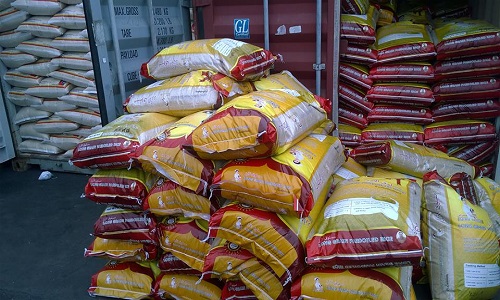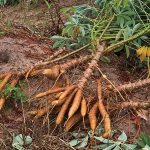Kabir Ibrahim, the President of the All Farmers Association of Nigeria, revealed that imported rice from India is priced at $58 per bag upon arrival. Speaking to The PUNCH in Lagos, Ibrahim highlighted that local rice maintains its affordability due to the country’s elevated exchange rate. He emphasized the challenge of competitiveness in using foreign exchange to import goods into Nigeria, underscoring that even though India offers the world’s cheapest rice, the landing cost for a 50kg bag exceeds N60,000 to Lagos when factoring in the current exchange rate.
Ibrahim observed that once local distribution and transportation expenses are factored in, it becomes challenging to compete with domestically available goods in Nigeria. Additionally, as the President of the Nigeria Agribusiness Group, he highlighted that importing maize from Brazil incurs higher costs compared to sourcing it locally. Despite yellow corn from Brazil being the most affordable option, Ibrahim noted that even as the former president of the poultry association, importing maize from Brazil used to be feasible due to its shorter voyage time of two weeks compared to six weeks from the United States. However, he emphasized that current landing costs make it difficult to compete with locally produced maize.
The president of AFAN refuted claims suggesting that 70 percent of imported livestock into Nigeria originated from the Niger Republic. This rebuttal comes in response to statements made by Nasiru Salami, the President of the Transborder Traders Association, who asserted that the majority of imported livestock into Nigeria indeed came from the Niger Republic.
Salami asserted that trade between Nigeria and other African nations primarily operated on a barter system. In response, Ibrahim countered, expressing skepticism: “I specialize in livestock. Whoever made that claim isn’t fully informed. While certain cattle breeds are obtainable from Niger Republic, particularly those renowned for their size and distinctive horns, in the poultry sector, I have firsthand experience. As a poultry farmer with a farm at the Katsina border, I can confirm that individuals from Niger Republic often purchase eggs from us,” clarified the AFAN president.
He clarified that the majority of the livestock slaughtered in Lagos originates from the northern regions of Nigeria, rather than from the Niger Republic.
Ibrahim disclosed that the association was advocating for the transportation of cattle via wagons. “Bringing them by rail would ensure they arrive without fatigue or hunger,” Ibrahim emphasized. Additionally, Shaki Agbeyewa, Deputy Chairman of AFAN, Lagos Chapter, emphasized the wisdom of purchasing such products within Nigeria rather than importing them. “From farm to final consumption, the entire process takes just a year within Nigeria’s agricultural cycle. It’s economically advantageous to buy locally. In contrast, imported goods may have been stored for up to three years, risking expiration or deterioration,” Agbeyewa emphasized.





